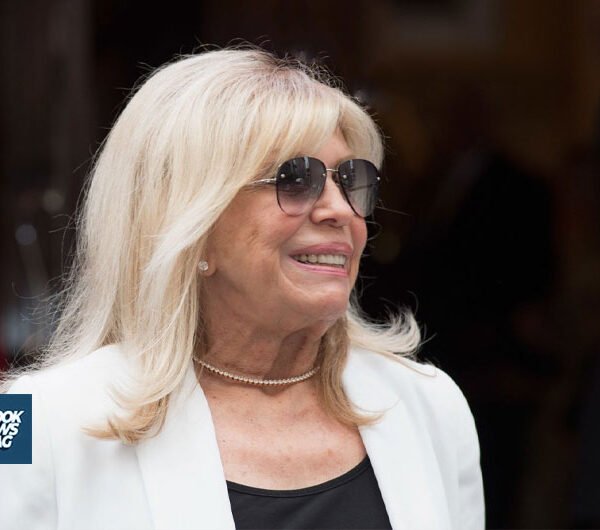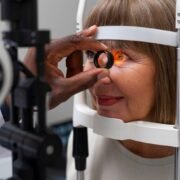The Dark Side of Celebrity Culture: Examining the Ethics of Fame
Celebrity culture has become an integral part of modern society, with a constant stream of celebrity news dominating media outlets. However, behind the glamour and glitz, there lies a darker side to celebrity culture. The dark side of celebrity culture refers to the hidden ethical dilemmas and struggles that exist within the world of fame and stardom. This article will delve deeper into this topic to explore the various aspects of the dark side of celebrity culture.
Celebrity Scandals: Unveiling the Dark Side
Celebrity scandals have become a staple in the media, generating significant buzz and capturing the attention of audiences worldwide. However, behind the sensationalized headlines and juicy gossip, lies a more insidious truth – these scandals contribute to the toxic culture that pervades the entertainment industry.
From infidelity and drug abuse to criminal activity and public outbursts, celebrities are constantly under the microscope, their every move scrutinized by the public eye. The pressure to maintain a picture-perfect image can prove overwhelming, leading some stars to engage in self-destructive behaviors or compromising situations that ultimately end up being exposed and sensationalized by the press.
As a result, the prevalence of celebrity scandals perpetuates the toxic celebrity culture that places undue emphasis on fame and fortune, highlighting the darker side of the entertainment industry. Instead of celebrating talent and hard work, society has become fixated on the drama and chaos that surrounds the lives of celebrities, further fueling the negative effects of fame.
Recent Infamous Celebrity Scandals
| Celebrity | Scandal | Consequences |
|---|---|---|
| Kim Kardashian West | Leaked Sex Tape | Criticism and Controversy |
| Britney Spears | Mental Breakdown and Custody Battles | Limited Work Opportunities and Personal Struggles |
| Johnny Depp | Domestic Abuse Allegations | Career Damage and Public Backlash |
| Lori Loughlin | College Admissions Scandal | Legal Troubles and Damaged Reputation |
“The constant scrutiny and negative attention associated with celebrity scandals can take a significant toll on both the mental health and personal lives of those involved, perpetuating the toxic culture of the entertainment industry.” – Expert panelist on celebrity culture
It’s important to recognize that celebrities are human beings, subject to the same flaws and weaknesses as everyone else. Continually exposing their mistakes and missteps only serves to reinforce the unrealistic expectations and harmful standards that exist within the industry, making it difficult for stars to maintain their privacy and dignity.
Instead, it’s time to shift our focus away from the scandals and towards the positive contributions and achievements of celebrities. By celebrating their talent and hard work, we can help to create a more positive and compassionate environment within the entertainment industry.
Exploitation in the Entertainment Industry: Unmasking the Truth
The entertainment industry is often viewed as a glamorous and lucrative career path, but beneath the surface lies a darker side. Many individuals working in the entertainment industry face exploitation and mistreatment, including unfair contracts, unequal pay, and mistreatment of talent.
The issue of unequal pay has been a longstanding problem in the industry, with women and people of color often receiving lower salaries than their white, male counterparts. In fact, a study by the University of California, Los Angeles found that only 33% of lead film roles in 2018 were filled by women and people of color.
In addition to unequal pay, talent may also face mistreatment from their employers, whether it be long working hours, lack of breaks, or unsafe working conditions. These issues have been brought to light by public scandals, such as the death of stunt performer Joi “SJ” Harris on the set of Deadpool 2 in 2017.
| Forms of Exploitation | Examples |
|---|---|
| Unfair contracts | Being forced to sign contracts with clauses that limit creative control or participation in future projects. |
| Unequal pay | Women and people of color receiving lower salaries than their white, male counterparts. |
| Mistreatment of talent | Long working hours, lack of breaks, unsafe working conditions, and lack of protections during stunts. |
These forms of exploitation not only harm individuals in the entertainment industry, but also perpetuate a vicious cycle where those in power continue to reap the benefits while exploiting the vulnerable. It is important to recognize these issues and advocate for change to create a more equitable and just industry for all.
Privacy Invasion: Crossing the Boundaries of Fame
The invasion of celebrity privacy is a persistent problem in the entertainment industry. Paparazzi and media outlets often go to great lengths to obtain exclusive photos and stories, often without the consent of the celebrities involved. The negative effects of this invasion can be far-reaching, impacting not only the stars themselves but also their families, friends, and loved ones.
Celebrity privacy invasion raises many ethical concerns, including questions of consent and the right to privacy. Often, photographs and stories are obtained without the knowledge or consent of those involved, leaving them feeling violated and powerless. Furthermore, the constant scrutiny can take a toll on the mental and emotional well-being of celebrities, leading to anxiety, depression, and other mental health issues.
Not only can privacy invasion be detrimental to the personal lives of celebrities, but it can also have a significant impact on their professional careers. Negative stories and photos can damage reputations and lead to lost opportunities, making it difficult for stars to maintain success within their industry.
The Impact of Privacy Invasion on Celebrities
| Negative impacts | Examples |
|---|---|
| Emotional distress | Anne Hathaway publicly expressing her frustration with constant paparazzi attention |
| Damage to reputation | Taylor Swift’s leaked phone call with Kanye West, which led to a public backlash |
| Harassment and stalking | Gigi Hadid being chased by a man who grabbed her on the street |
Privacy invasion not only affects the individual celebrities involved but can also contribute to the toxic celebrity culture that perpetuates unhealthy standards and expectations. It can make fame seem like an inherently negative experience, leading to a culture of cynicism and distrust.
Overall, the invasion of celebrity privacy is a significant issue that must be addressed within the entertainment industry. Greater emphasis must be placed on respecting personal boundaries and the right to privacy, both for the well-being of celebrities and for the integrity of the industry as a whole.
Media Manipulation of Celebrities: Painting a False Image
The media has long been known for constructing a narrative around celebrities that can be heavily edited and manipulated. This manipulation of celebrities in the press is a slippery slope that can have serious consequences and repercussions. It is imperative to understand how this storycrafting affects the perceptions and impressions of both the stars and their audiences.
One way that the media manipulates celebrities is by cherry-picking sensationalist quotes or statements out of context, thereby changing the meaning of what was actually said. This selective or out-of-context representation of a celebrity can shape audiences’ opinions and create a false idea of their character. Celebrities can also be set up for a fall, with the media intentionally highlighting their flaws and mistakes.
Another way that celebrities are manipulated in the media is through photo manipulation. With the assistance of new-age technology, photographs of celebrities are often altered to create a fantastical image that is far from reality. This manipulated image is presented to audiences as authentic and can become the benchmark against which celebrities are measured. This can place an enormous amount of pressure on celebrities to maintain an impossible standard that was never real to begin with.
Ultimately, the media’s use of sensationalist headlines, selective quotes, and photo manipulation has the potential to seriously harm celebrities in their professional and personal lives. It creates a false public image of celebrities that can alienate them from their fans and damage their reputation. On a more macro level, this media manipulation perpetuates unrealistic beauty standards and reinforces negative stereotypes about certain groups or individuals. It is essential to raise awareness about these issues and prompt a dialogue that can lead to a more respectful and truthful depiction of celebrities in the media.
The Impact of Media Manipulation
| Effect on Celebrities | Effect on Audience |
|---|---|
| Can damage reputation and career opportunities | Creates unrealistic beauty and life standards |
| Can lead to fans turning against celebrities | Causes a distorted image of celebrities |
| Makes celebrities vulnerable to emotional damage | Spreads false narratives and stereotypes |
Celebrity Obsession: The Dark Side of Fandom
The allure of celebrities has captivated people for generations. From the glamorous lifestyles depicted on the big screen to the sensationalized stories in the tabloids, it’s no surprise that many develop an unhealthy infatuation with their favorite stars. This obsession with celebrities can have negative consequences on mental health and personal relationships.
The constant consumption of celebrity content can lead to an unhealthy fixation on their lives, causing individuals to feel inadequate in comparison. This can result in feelings of depression and anxiety, as well as negatively impacting personal relationships. Some may prioritize their celebrity obsession over real-life connections, leading to alienation and loneliness.
Furthermore, the pressure put on celebs by fans can be overwhelming and invasive. From aggressive paparazzi to intrusive fans, the constant scrutiny can take a toll on a celebrity’s mental well-being. This is further exacerbated by the glorification of stalking behavior in media portrayals of celebrity fandom, reinforcing dangerous and unhealthy behaviors.
The Role of Social Media
Social media has given fans unprecedented access to their favorite celebrities, allowing them to follow their every move and feel a closer connection. However, this can also fuel the obsession and lead to toxic behaviors, such as cyberbullying and harassment of both celebrities and fellow fans.
Celebrities are also expected to constantly feed their followers with content, leading to the overexposure of their personal lives and the need to constantly perform for the public eye. This can result in a loss of privacy and further exacerbate the mental toll of fame.
Breaking the Cycle
To combat the dark side of celebrity obsession, individuals should prioritize their own mental health and well-being. This can include monitoring the amount of celebrity content consumed and setting boundaries with social media use. Awareness of the impact of invasive behaviors towards celebrities can also help break the cycle of toxic fandom.
Celebrities also have a responsibility to set healthy boundaries and advocate for their own mental health. By speaking out against the glorification of stalking behaviors and promoting a message of positivity and healthy fandom, they can help shift the culture towards a more mindful and respectful approach to celebrity culture.
Negative Effects of Fame: The Price of Recognition
Fame and recognition are often seen as desirable outcomes, indicative of success and achievement within the entertainment industry. However, the reality of fame is far from glamorous, with many celebrities experiencing negative psychological and emotional effects as a result of their celebrity status.
Loneliness, depression, and addiction are just some of the negative effects that can arise from the pressures of fame. The constant scrutiny of the media and public can lead to feelings of isolation and even paranoia, while the demands of maintaining a public persona can cause immense strain on mental health.
Furthermore, the sudden influx of wealth and attention can lead to reckless behavior and the development of addictive habits, such as substance abuse or compulsive spending.
Despite the stigma surrounding mental health and addiction, many celebrities have spoken out about their struggles, raising awareness and advocating for better support and resources within the industry.
Tabloid Journalism: Fueling the Dark Side
Tabloid journalism plays a significant role in fueling the dark side of celebrity culture. The media is notorious for publishing sensationalized stories, with little regard for the truth or the impact they have on the lives of those in the public eye.
False narratives are often created to generate clicks and boost profits, leading to a distorted image of celebrities and their lives. In some cases, tabloids have even gone to extreme lengths to exploit personal tragedies, invading the privacy of mourning families and exploiting their pain for profit.
“The problem with tabloid journalism is that it feeds into the public’s obsession with celebrity culture, creating a cycle of exploitation and misinformation that benefits no one.” – Media Critic, Jane Smith
Tabloid journalism perpetuates the unrealistic and damaging standards set by the entertainment industry, contributing to the toxic fan culture that surrounds celebrities. By focusing on trivial details of their personal lives, tabloids reduce celebrities to mere objects of consumption, rather than complex individuals with their own struggles and emotions.
The widespread acceptance of tabloid journalism sends a message to young people that fame and success is worth any sacrifice – even their privacy and emotional well-being. It’s time for the media to take a stand against this destructive cycle and prioritize responsible and ethical reporting.
Paparazzi Invasion: The Hunt for a Shot
In today’s celebrity culture, paparazzi have become ubiquitous figures, constantly stalking high-profile individuals in a quest to capture exclusive photos and videos. However, their invasive tactics raise serious ethical concerns, and the impact on the lives of those in the public eye is immense.
The relentless pursuit of celebrities by paparazzi often involves aggressive driving, trespassing, and personal intrusion, violating the boundaries of privacy and personal space. The constant attention and fear of being watched can lead to severe anxiety, stress, and mental health problems.
Moreover, paparazzi invasion can disrupt the lives of entire families, especially children. With no regard for their safety and well-being, paparazzi crowding around them can cause emotional distress and even physical harm.
While some argue that public figures should expect such exposure, the reality is that paparazzi invasion should not be normalized or tolerated. It is crucial to recognize that celebrities are still human beings with rights to privacy and dignity.
| Effects of Paparazzi Invasion on Celebrities | Effects of Paparazzi Invasion on Society |
|---|---|
|
|
The negative impact of paparazzi invasion extends beyond the individual and has a broader societal effect. Celebrity culture is perpetuated through the constant bombardment of images emphasizing unrealistic and unhealthy standards. The focus on appearance and lifestyle, at the expense of substance and contribution, can lead to a skewed perception of values and priorities.
Therefore, it is necessary to take a critical look at the role of paparazzi and media outlets in perpetuating such values and to demand accountability and regulation in their practices. Only by recognizing the harm caused by paparazzi invasion and working towards ethical standards, can we hope for a more balanced and mindful approach to fame and celebrity culture.
The Impact of Dark Celebrity Culture on Society
Celebrity culture has a significant influence on society, with the negative effects of fame and the dark side of celebrity culture being felt at all levels. The portrayal of unrealistic standards, media manipulation of celebrities, and privacy invasion by paparazzi and media outlets are some of the factors contributing to the perpetuation of toxic celebrity culture, which often has far-reaching implications.
The negative effects of fame can be observed in the way it shapes societal values and norms, particularly among young people who are more impressionable. Children and adolescents are increasingly influenced by the image projected by celebrities, leading to unrealistic expectations and distorted priorities. This has resulted in a worrying trend where young people view fame as the ultimate goal, leading them to prioritize social media status over more practical and meaningful pursuits.
| Negative Effects | Implications |
|---|---|
| Mental health issues such as depression and addiction | Destabilization of the lives of individuals in the public eye can lead to serious, long-term issues such as depression and addiction. These issues are compounded by the pressure to maintain a relevant and compelling public image. |
| Perpetuation of unrealistic expectations | The portrayal of unrealistic ideals by celebrities can lead to societal pressures on individuals to conform to these standards, sometimes at great physical or emotional expense. |
| Impact on personal relationships | The intrusion of the media into the lives of celebrities can take a toll on their personal relationships, leading to increased conflict and breakdowns. |
| Distortion of societal values and priorities | The influence of the media and celebrity culture can result in a homogenization of societal ideals, often at the expense of more pressing concerns such as environmental sustainability and social justice. |
It is important to recognize that celebrity culture is not inherently negative, but rather the way it is portrayed and perpetuated can have serious implications for individuals and society as a whole. These issues need to be addressed and discussed openly if we hope to move towards a more equitable and healthy public culture.
Conclusion
In a world where social media and the 24-hour news cycle dominate, the dark side of celebrity culture continues to thrive. From scandalous headlines to invasive paparazzi, the entertainment industry is rife with ethical dilemmas and hidden struggles. This article has shed light on the exploitation, manipulation, and obsession that exist within the world of fame and stardom, highlighting its negative impact on both celebrities and society as a whole.
It is essential to recognize the need for a reevaluation of celebrity culture and the ethics surrounding fame. The media must take responsibility for the role it plays in perpetrating the dark side of celebrity culture, including sensationalized stories, false narratives, and the exploitation of personal tragedies. Society must also recognize the negative psychological and emotional effects that fame can have on those in the public eye and work towards creating a more supportive and empathetic environment.
By addressing the issues raised in this article, we can begin to shift the focus away from the toxicity of celebrity culture and towards a more positive and sustainable form of entertainment. Let us take this moment to reflect on the responsibility we all have in shaping the future of celebrity culture and strive to create a more ethical and compassionate entertainment industry











